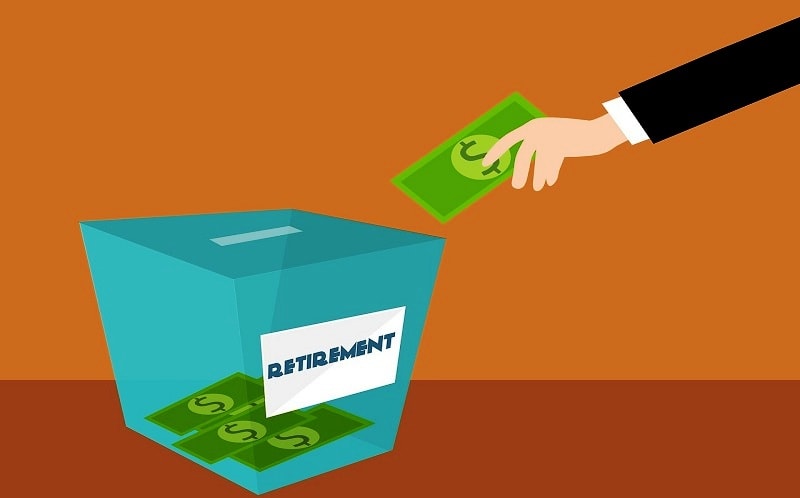‘Paying back your student loans shouldn’t be your first concern’. This is where people make mistakes.
Always make a financial strategy first, take the look at the options offered by the colleges/schools you would want to apply, make a budget, construct healthy goals with the student loans.
Creating your retirement the most beautiful time of your life.
Consider paying off student loans early only if you’ve strong financial support by
- Having emergencies savings
- Signing up for automatic payments to one of the retirement plans like 401(k) or Roth IRA.
- Being able to clear up debt with a higher interest rate than your student loans.
However, if you’re determined to clear up your student loans quickly, make more savings and investments, plus consider paying off only if you have a solid financial backup.
More About Student Loans?
Student Loans leaves an impact on a person as well as the entire economy if the payment is not done on time. Around 68% of successful graduates bear student loans, ended up with an average graduate having $29,000 debt.
Managing your financial priorities could be disturbing while clearing loan debt. Such key goals like retirement saving plans would be affected. However, retirement savings are relevant even if loan debts exist or not.
Paying off Loans vs Retirement Savings
Clearing student loans is a huge relief to your debt life, yet retirement would be exhausting if there is no financial stability achieved.
As you age with time, maybe after 28 years from now during retirement, living costs plus your medical costs would replace 80% of your income.
Society security cannot meet up your total living costs, in fact, in 2020 January, it was $1,177 of average monthly social security payment.
Save for retirement early and pay for student loans is an important factor due to the effect of compound interest.
For example, if you save $50 per month, in 20 years, you’ll save $600 per year or $12,000 in total. But, the worth will be $22,000 with 6% of compound interest doubling the amount you gave.
Track your savings status using a retirement calculator before you make any additional student loan payments.
Use 401k plans
Retirement plans like 401k plans are gloriously encouraged to many people. The retirement plans are the best ways to benefit your savings for retirement while trying to pay off student loans.
There are companies offering a similar contribution to 401(k) and 402(b) retirement plans.
For instance; if a company offers a 5% match and you give 5% to your 401(k) plan, your company will charge an extra 5% that isn’t from your pay. So, try taking these similar contributions by paying it to a similar account. The moment you’re vested in your retirement match, that money belongs to you even when the job is not yours.
Learn your repayment options
Repayment options are the area that will help you to balance both retirement savings and paying off student loan debt.
Having a repayment plan is the best backup plan to rejuvenate your finance route. It depends on your loans that are either federal or private.
Private loans have fewer repayment options and no federal fundings on it. Your financial lender, loan holder or servicer will guide you with repayment options.
Private loans reduce your interest rates if refinanced. then you’ll be put on the standard plan having to pay off loans within 10 years. But, you can always go for other plans if necessary.
Go for Income-Based Repayment (IBR) plans instead if you’re a graduate student. Such plans provide loan forgiveness on your loan debt after 20-25 years.
Consolidation is valid if you bear many federal loans on the plans depending on your income.
Having a direct loan, you can make automatic payments via your loan servicer, and you’ll receive a 0.25% reduction on interest rates.
Choosing federal loans with no repayment plan,
Always exercise your repayment plan to make the best use of your income.
Other ways of paying off student loans
There is never a harm to go for other financial goals. These financial steps are as follows
High-interest debt
Loan debts can be problematic if not made up. Choosing low-interest student loans or mortgage debt can help you with income savings and less interest rate deduction. Interest rates of more than 6% such credit card payments make a loan debt burdensome. Having a credit card debt, try reducing your expenses until the loan debt is made.
Emergency Fund
Everyone should set up an emergency fund for those in needy financial times without having to ask for help. This fund should help your living expenses over 3-6 months. The smart way is to transfer your income to a segregate savings account until your savings are up to mark. These savings should always be accessible. Roth IRA and Health Savings Account can be added under the emergency fund.
Sudden Expenses
Having these funds is a must if any unavoidable, personal expenses arise. Aim to save around $1000-$2000 in your separate account for this.
Find out Financial Goals
Loan debts should never stop your other life desiring spending plans. Learn to make your long-term and short-term financial plan more flexible with the steps to immune your likelihood in your favoring financial goals to achieve.
A financial plan always guides over your student loan debt. There are always multiple ways to put your payments into your financial plan that will balance retirement savings versus student loan debt.
Savings for Retirement with Student Loans?
It depends on how much you allocate that money. Look at your expanding ways and costs of student loans per month. Then, sum up everything and minus it from your overall income. This revealing difference will leave you to assume how much to save for retirement.
In order to save your credit score status and avoid penalties, always try to pay as possible on the present student loan.
According to Sowhanger,” After that has been satisfied, whatever percentage you are able to contribute towards an employer-sponsored retirement plan to take advantage of the maximum employer match should then be saved.”
Clearing Student Loans Before Retirement
An increase in loan debts means an increase in interest rates. Here are the few tips below to clear your student loans monthly, if you’re planning to pay off early to save for retirement.
Paying off capitalized interest
If your student loans are on a grace period, try to pay it off as possible following graduation within six months. It will stop your interest from expanding.
Extra Payments
Try to sign up for an autopay that is an automatic deduction from your savings each month, which will lower your interest rate. Some loan servicers subtract additional payment and send it to a specific loan.
Biweekly Payments
Create biweekly payments via online.
Employer’s Offers
Few of the employers pay off student loans in terms of workplace benefit. Consult your HR representative, enroll for it if you’re eligible under such offers.
Refinancing loans
Shorten your repayment time duration by refinancing student loans. Not only the credit score and earnings will be stable, but also you’ll qualify for a new loan with less interest rate.
Remember to use a student loan payoff calculator to save yourself from repayment strategies.
Think twice before setting up your move
Clearing back student loans/debt is not your first priority. Instead, creating for emergencies and retirement, clearing rid of credit card debt is more relevant.
As explained above, if one succeeds in growing financial status, clearing the payments shouldn’t be a grief cause and livelihood after retirement would turn phenomenal.





























